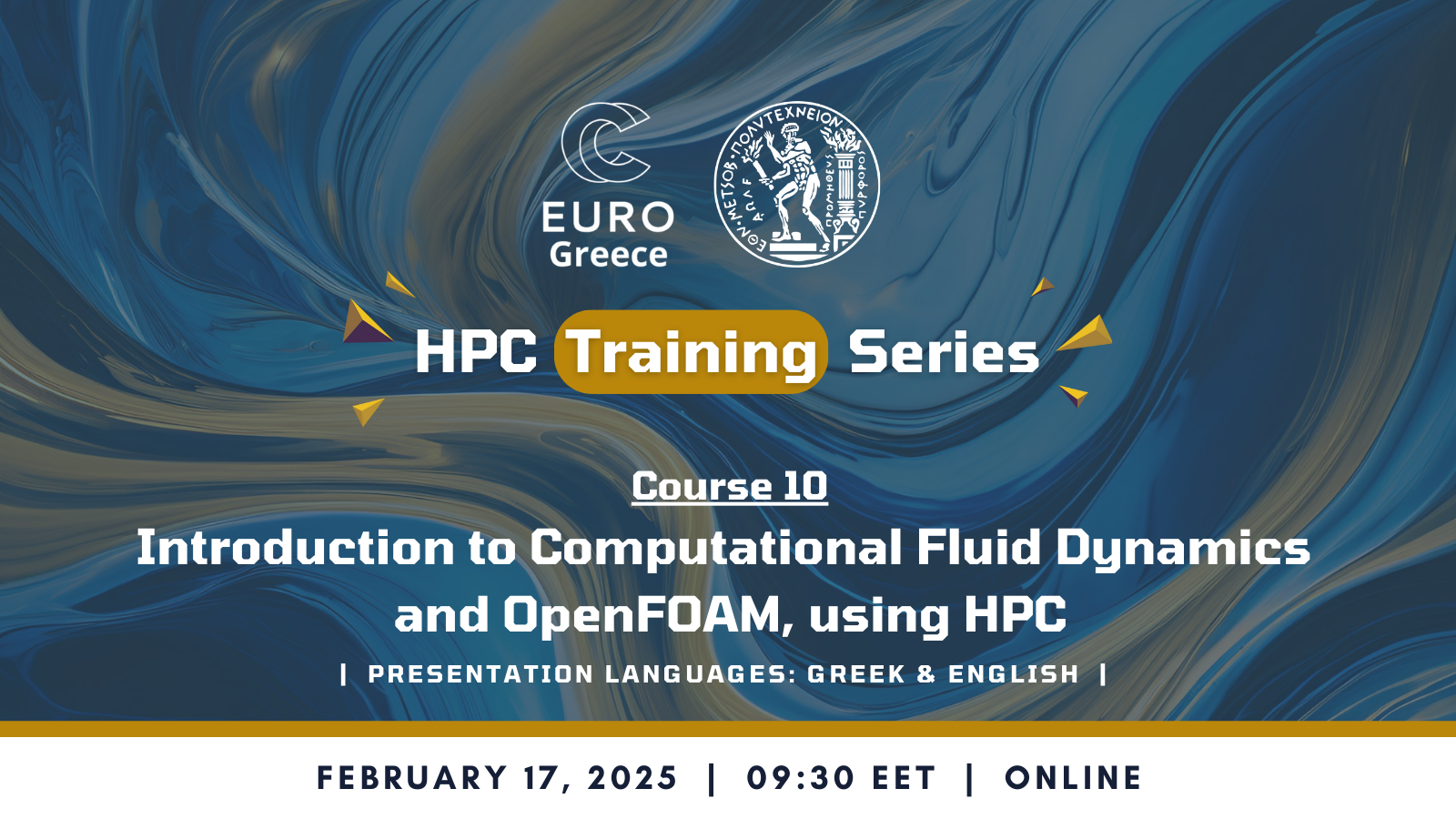
EuroCC@Greece and the National Technical University of Athens announce the 10th Course of HPC Training Series with the subject "Introduction to Computational Fluid Dynamics and OpenFOAM, using High Performance Computing", that will take place online on February 17th, 2025.
Date: February 17th, 2025, at 10:00 EET
Location: Online via Zoom
Presentation Languages: Greek & English
Audience: Suitable for students, researchers, and engineers working in the field of Computational Fluid Dynamics (CFD), who are interested in working in an HPC environment.
Description: The course includes an introduction to High-Performance Computing (HPC) and Computational Fluid Dynamics (CFD) using OpenFOAM, with a demonstration of the SLURM job submission system. The session begins with setting up and troubleshooting a virtual HPC environment, which attendees will install on their own machines to simulate an HPC experience. The schedule covers fundamental concepts of CFD, such as the notions of a mesh, turbulence modeling, solution algorithms and discretization schemes and introduces OpenFOAM’s features and history. Attendees will submit and manage CFD jobs in a simulated HPC environment. The course will conclude with examples of high fidelity simulations from various engineering domains, from Politecnico di Milano.
Objectives: The objective of the training is to introduce newcomers to basic concepts related to CFD and to make them familiar with the open-source CFD toolbox OpenFOAM. Additionally, at the end of the training, the attendees should have understood how a job submission tool, like SLURM, can be used to submit and track jobs in an HPC environment. A final objective is to inform the attendees about the CPU cost of demanding CFD cases and how HPC can help them tackle such problems at reasonable turnaround times.
Prerequisites: Familiarization with a Linux-like Command Line Interface (CLI) is necessary to navigate around the example cases that will be provided and to make small modifications to them. A CLI-based editor (vi, emacs, nano, etc) will also be useful to manipulate the provided cases but is not strictly necessary. The attendees that want to follow the hands-on part of the training will have to download a Docker image that will include OpenFOAM and a virtual HPC environment, containing SLURM. Finally, basic understanding of fluid mechanics, linear algebra and CFD are also useful background knowledge for following the training.
Find here the instructions for installing the virtual environment.
Note: Please enter your institutional/corporate email when registering.
